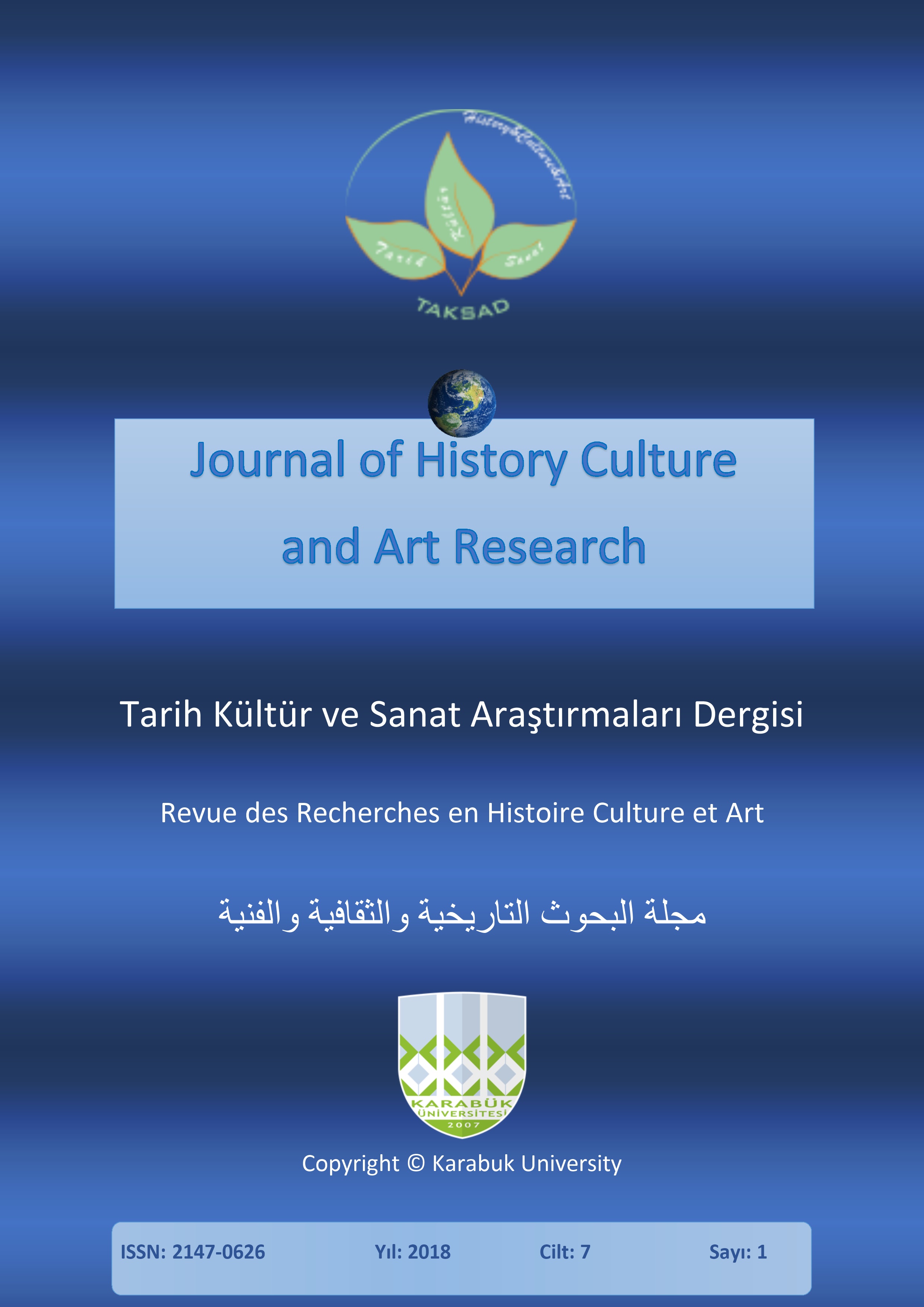The Historical Past as a Factor of Sociocultural Transformations of Postmodernity
DOI:
https://doi.org/10.7596/taksad.v7i1.1473Keywords:
Modernity, Postmodernity, Social projecting, Historical past, Sociocultural transformations, Social dynamics.Abstract
The content of the reflexive process over the historical past is substantiated in the article. The character of influence on this process in the conditions of social development in the 21st century is studied. The reasons of eventually accumulated mistrust to credibility of knowledge about the past are considered; at the same time within the postmodern tradition it led to reinterpreting the historical past by postmodernists who deny its sanctity and self-sufficiency. The category of "modernity" that is a complex temporally dispersed category which can combine the past, present and future. In the article the idea that the strategies of implementing global social project not only determine the focus and content of "progressive" and in fact technogenic and utilitarian social development but also act as a catalyst to rethink social and individual values, ideals and principles is highlighted. In this connection traditionalistic historical consciousness is going through a period of underlying culture and value transformations. Transformations of historical consciousness affect such an important component of collective goal-setting as attitude to the "past" as to a certain image, a picture of a bygone reality. In the modern world the fashion for the "tradition" and the "archaic" becomes noticeable and certain communities try to archaize their political, economic and sociocultural practice. As a result "modernity" as a centered European project of 17-19 centuries (project "Modern") transforms into "postmodernity" that is not only mosaic-like "postmodernism" but also "ultramodernism" which combines the "past", "present" and "future" and where diverse political and social practices coexist in a market that is more and more unified by the globalization processes. In these conditions a rising factor of social uncertainty complicates planning and forecasting on the state of future society.
References
Abadía, O. M. (2010). Connecting historiographical traditions. Studies in History and Philosophy of Science Part A. 41 (1): 105-108.
Agassi, J. (2011). The Manhattan Project and Its Long Shadow. Philosophy of the Social Sciences. 41 (4): 574-595.
Baklanova, O. A. & Baklanov, I. S. (2013). Russian social typology in modern social cognition. Humanities and Social Sciences in Europe: Achievements and Perspectives 1st International symposium: 170-175.
Baklanova, O. A.; Baklanov, I. S.; Kolomak, A. I. & Pokhilko A. D. (2014) Sociality as a social-philosophical problem. Life Science Journal. 11. (11s.): 5-7.
Craven, W. G. (1986) Giovanni Pico della Mirandola, symbol of his age. Modern interpretations of a renaissance philosopher. History and Theory. 25 (1): 113.
Elder-Vass, D. (2007). Luhmann and emergentism: Competing paradigms for social systems theory?. Philosophy of the Social Sciences. 37 (4): 408-432.
Kara-Murza, S. G. (2006). Fading of rationality: imitation. Social and humanitarian knowledge. 6: 3-12.
Milkov, N. (2011). Towards a Reistic Social-Historical Philosophy. Petrov V. (ed.), Ontological Landscapes: Recent Thought on Conceptual Interfaces between Science and Philosophy. Ontos.
Nagapetova, A. G.; Pokhilko, A. D.; Shmatko, A. A.; Vetrov, Y. P. & Novikova, O. S. (2017). Social-Historical Transformations in Russia. Journal of history culture and art research, 6 (4): 1344-1350. DOI: 10.7596/taksad.v6i4. 1191.
Searle, J. (2010). Making the Social World: The Structure of Human Civilization. Oxford: Oxford University Press.
Tallant, J. (2010). Time for presence? Philosophia. 38 (2): 271-280.
Toffler, A. (1970). Future shock. United States. Random House.
Wuthrich, C. (2012). Demarcating presentism. Henk de Regt, Samir Okasha & Stephan Hartmann (eds.), EPSA Philosophy of Science. Amsterdam 2009. Springer: 441-450.
Zinn, J. O. (2009). Social Theories of Risk and Uncertainty: An Introduction. Wiley-Blackwell: 264.
Downloads
Published
How to Cite
Issue
Section
License
All papers licensed under Creative Commons 4.0 CC-BY.- Share — copy and redistribute the material in any medium or format
- Adapt — remix, transform, and build upon the material for any purpose, even commercially.
Under the following terms:
Attribution — You must give appropriate credit, provide a link to the license, and indicate if changes were made. You may do so in any reasonable manner, but not in any way that suggests the licensor endorses you or your use.
- No additional restrictions — You may not apply legal terms or technological measures that legally restrict others from doing anything the license permits.







